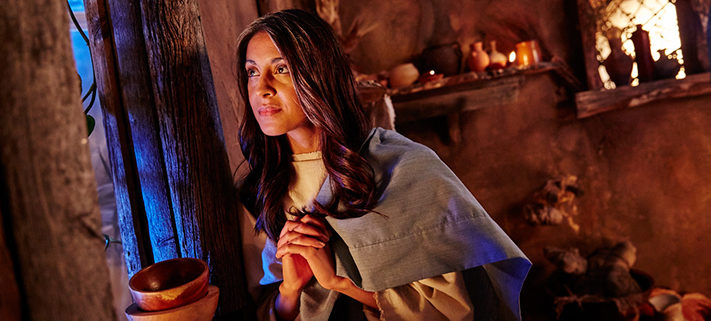God loves the doubters
A week later his disciples were in the house again, and Thomas was with them. Though the doors were locked, Jesus came and stood among them and said, “Peace be with you!” Then he said to Thomas, “Put your finger here; see my hands. Reach out your hand and put it into my side. Stop doubting and believe.” John 20:26,27
Joel C. Seifert
We say, “Seeing is believing,” as though somehow if we can just see some proof, then all doubt disappears. It wasn’t that way for Thomas.
Doubt often comes from what we do see
You know the Easter account. The risen Christ appeared to his disciples, but Thomas wasn’t there. He didn’t see, so he didn’t believe, right? But consider what Thomas had seen. He saw Jesus walk on water. He saw Jesus heal the sick. He saw Jesus raise the dead.
But then he saw Jesus die. And he doubted.
It’s amazing how powerful doubt can be, even for people who have seen so much of God’s love. When the disciples told him they’d seen the Lord, Thomas didn’t just struggle with a nagging doubt. It was a full-throated, “God, if you’re expecting me to believe, you need to show me what I want to see.”
Sometimes we doubt that way too. God shows us constant proofs of his love and the truth of his Word. We see it! But it’s not all we see: I believed in God until I saw war . . . until my grandpa died . . . until my mom got cancer. We see proofs of faith, but we see evil too.
In a strange way, Thomas is an important example of doubt. He was honest about it. That was just the right thing to do.
Jesus wants us to take our doubt to him
Doubt is painful, sinful, and yet quite natural to our human hearts. It scares us, but it doesn’t scare Jesus. He loves the doubters. He didn’t yell at Thomas or avoid his doubts. Jesus brought Thomas closer. He invited him to touch him.
Do you doubt? Do you doubt in ways that make you want to stay away? Or even in little ways that steal your joy? Confess that sin to Jesus; bring it to him and hear him say something you don’t expect. He isn’t afraid of your doubts. He’ll bring you even closer.
Christmas is almost here. It’s a time to read about Mary holding Jesus in her arms, not Thomas putting his fingers into Jesus’ hands and side. But for hundreds of years Dec. 21 has bees set aside to remember Thomas and think about God’s love for the doubters. Dec. 21 is often the shortest day of the year. It’s the day with the least amount of light—the day that’s hardest to see things for what they are. It’s a good picture of doubt. And if you’re sitting in the darkness of the winter solstice, do you know what you can be sure of every day about to come? It’ll be brighter.
Sometimes God brings the greatest hope out of doubt. Whenever you struggle, take your doubts to Jesus. Let your fingers run over the pages of his promises. Realize he’s as close to you as your hands or your mouth in Holy Communion. His grace is dripping down your head in Baptism. He comes as a child at Christmas. That’s what we see— and he opens our hearts to say with Thomas, “My Lord and my God” (John 20:28).
Keep going back to God’s promises. Things get brighter.
Contributing editor Joel Seifert is pastor at Beautiful Savior, Marietta, Georgia.
SUBMIT YOUR STORY
Do you have a manuscript, idea, or story from your own life you’d like to share for use in Forward in Christ or on wels.net? Use our online form to share it to our editorial office for consideration.
SUBSCRIBE TO FORWARD IN CHRIST
Get inspirational stories, spiritual help, and synod news from Forward in Christ every month. Print and digital subscriptions are available from Northwestern Publishing House.
Author: Joel C. Seifert
Volume 106, Number 12
Issue: December 2019
Copyrighted by WELS Forward in Christ © 2021
Forward in Christ grants permission for any original article (not a reprint) to be printed for use in a WELS church, school, or organization, provided that it is distributed free and indicate Forward in Christ as the source. Images may not be reproduced except in the context of its article. Contact us













